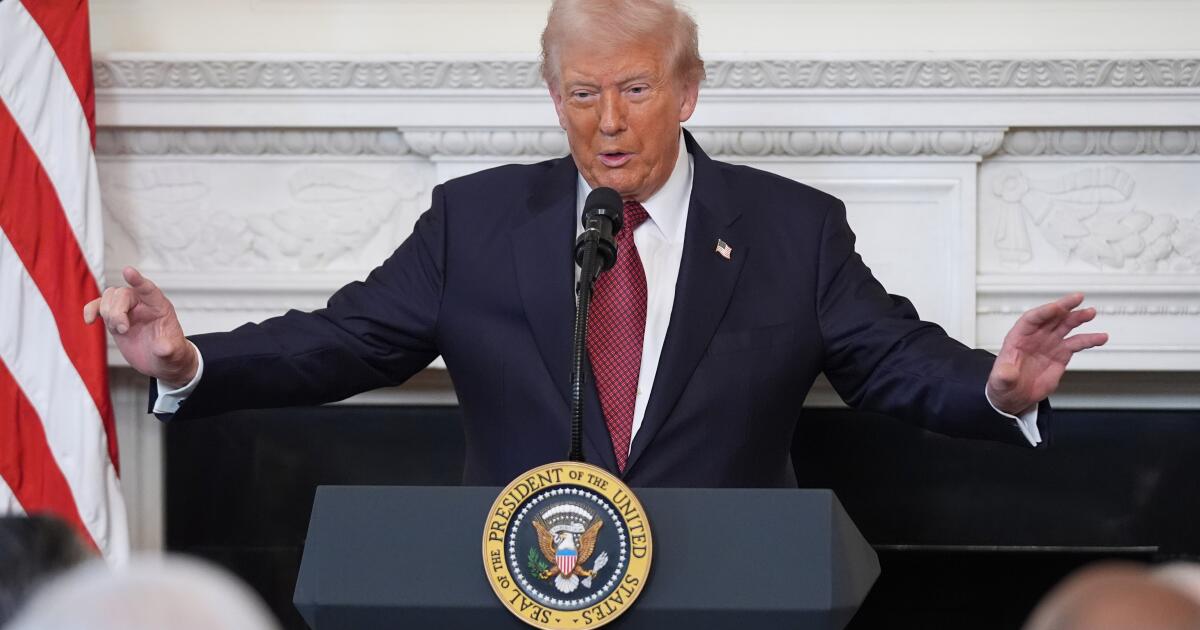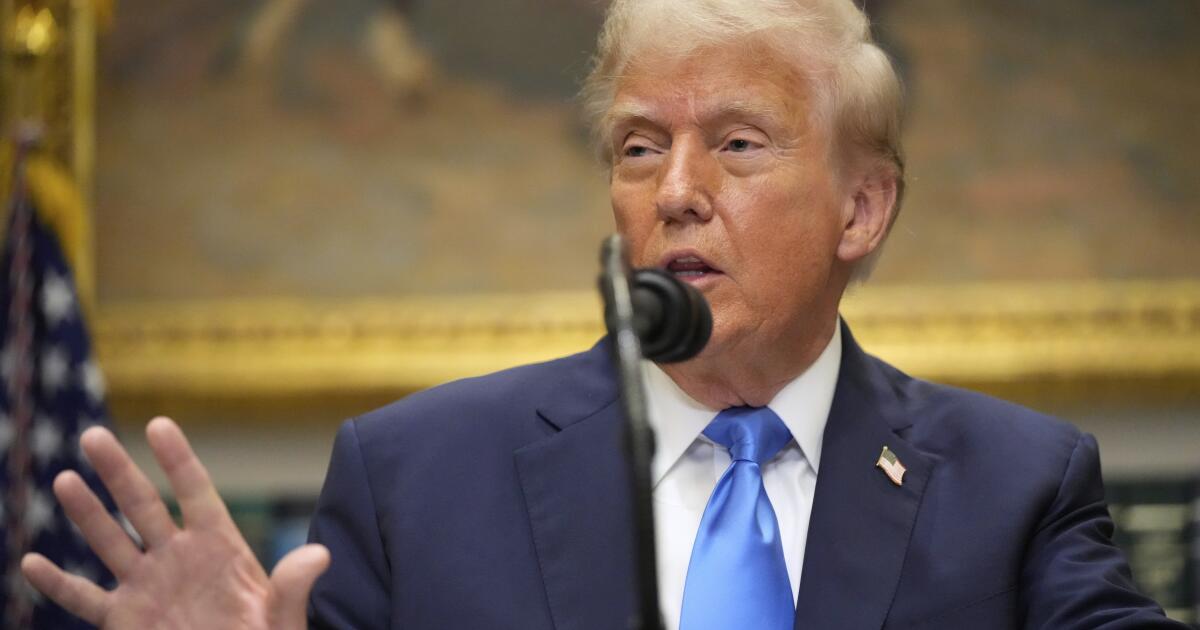On Day 36, the government shutdown is the longest in U.S. history
WASHINGTON — The government shutdown has entered its 36th day, breaking the record as the longest ever and disrupting the lives of millions of Americans with program cuts, flight delays and federal workers nationwide left without paychecks.
President Trump has refused to negotiate with Democrats over their demands to salvage expiring health insurance subsidies until they agree to reopen the government. But skeptical Democrats question whether the Republican president will keep his word, particularly after the administration restricted SNAP food aid despite court orders to ensure funds are available to prevent hunger.
Trump, whose first term at the White House set the previous government shutdown record, said this one was a “big factor, negative” in the GOP’s election losses Tuesday and he repeated his demands for Republicans to end the Senate filibuster as a way to reopen the government — something senators have refused to do.
“We must get the government back open soon,” Trump said during a breakfast meeting Wednesday with GOP senators at the White House.
Trump pushed for ending the Senate rule, which requires a 60-vote threshold for advancing most legislation, as a way to steamroll the Democratic minority on the shutdown and pass a long list of other GOP priorities. Republicans now hold a 53-47 majority in the Senate, and Democrats have been able to block legislation that would fund the government, having voted more than a dozen times against.
“It’s time for Republicans to do what they have to do, and that’s terminate the filibuster,” Trump told the senators.
That push is likely to go unmet by Republican senators but could spur them to deal with the Democrats.
Trump has remained largely on the sidelines throughout the shutdown, keeping a robust schedule of global travel and events, including at his private Mar-a-Lago club in Florida. Instead, talks have intensified among a loose coalition of centrist senators trying to negotiate an end to the stalemate.
Expectations are high that the logjam would break once election results were fully tallied in the off-year races widely watched as a gauge of voter sentiment over Trump’s second term. Democrats swept key contests, emboldening progressive senators who want to keep fighting for healthcare funds. Moderate Democrats have been more ready to compromise.
The top Democrats in Congress demanded that Trump meet with Capitol Hill leaders to negotiate an end to the shutdown and address healthcare.
“The election results ought to send a much-needed bolt of lightning to Donald Trump that he should meet with us to end this crisis,” said Senate Democratic leader Chuck Schumer of New York.
Trump sets another shutdown record
Trump’s approach to the shutdown stands in marked contrast to his first term, when the government was partially closed for 35 days over his demands for money to build the U.S.-Mexico border wall. At that time, he met publicly and negotiated with congressional leaders. Unable to secure the money, he relented in 2019.
This time, it’s not just Trump declining to engage in talks. The congressional leaders are at a standoff and House Speaker Mike Johnson (R-La.) sent lawmakers home in September after they approved their own funding bill, refusing further negotiations.
A “sad landmark,” Johnson said at a news conference Wednesday. He dismissed the party’s election losses and said he is looking forward to a midterm election in 2026 that will more reflect Trump’s tenure.
In the meantime, food aid, child-care money and countless other government services are being seriously interrupted. Hundreds of thousands of federal workers have been furloughed or expected to come to work without pay.
Transportation Secretary Sean Duffy predicted there could be chaos in the sky next week if air traffic controllers miss another paycheck. Labor unions put pressure on lawmakers to reopen the government.
“Can this be over now?” Senate Majority Leader John Thune (R-S.D.) said as he returned from the White House breakfast. “Have the American people suffered enough?”
Thune also said there is not support in the Senate to change the filibuster. “It’s not happening,” he said.
Senators search for potential deal
Central to any resolution will be a series of agreements that would need to be upheld not only by the Senate, but also the House, and the White House, which is not at all certain in Washington.
Senators from both parties, particularly the members of the powerful Appropriations Committee, are pushing to ensure the normal government funding process in Congress can be put back on track.
Among the goals is guaranteeing upcoming votes on a smaller package of bills where there is already widespread bipartisan agreement to fund various aspects of government such as agricultural programs and military construction projects at bases.
“I certainly think that three-bill package is primed to do a lot of good things for the American people,” said Sen. Katie Britt (R-Ala.), who has been in talks.
Healthcare costs skyrocket for millions
More difficult, a substantial number of senators also want some resolution to the standoff over the funding for the Affordable Care Act subsidies that are set to expire at year’s end.
With insurance premium notices being sent, millions of people are experiencing sticker shock on skyrocketing prices. The loss of enhanced federal subsidies, which were put in place during the COVID-19 pandemic and come in the form of tax credits, are expected to leave many people unable to buy health insurance.
Republicans are reluctant to fund the healthcare program, also known as Obamacare, without changes, but negotiating a compromise with Democrats is expected to take time, if a deal can be reached at all.
Thune has promised Democrats at least a vote on their preferred healthcare proposal, on a date certain, as part of any deal to reopen government. But that’s not enough for some senators, who see the healthcare deadlock as part of their broader concerns with Trump’s direction for the country.
Mascaro and Jalonick write for the Associated Press. AP writers Kevin Freking, Stephen Groves, Joey Cappelletti and Matt Brown contributed to this report.

